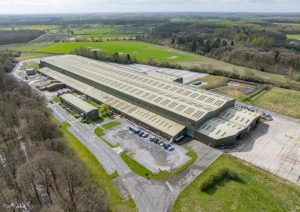Seeing Green: Environmentally Friendly Business Solutions

Sustainability is certainly not a new concept within the modern business community. However, the ability to develop environmentally friendly policies has become even more important thanks in large part to increasing governmental regulations. Organisations are being forced to reinvent their operational models, an on occasion, to invest a significant amount of money.
What are some of the latest trends? Are there any real-world examples that can help to illustrate what the future has in store? Let’s examine business sustainability from a macroscopic perspective to understand why there is no better time than the present to take action.
A Familiar Concern?
To be clear, some industries have already implemented a host of modifications to lower their overall carbon footprint. For example, syngas scrubbers can be used to remove a host of pollutants found within synthetic gas. Manufacturing facilities might likewise employ energy-efficient lighting fixtures, or use biodegradable packaging materials. However, the notion of “going green” might not be as familiar to other sectors.
This is why novel solutions are often required; some of these more apparent than others. What are some unique approaches that can be implemented without being forced to spend an inordinate amount of money? Let’s now discuss the practical side of sustainable business models.
Small Changes to Make a Big Impact
The good news is that even minor strategic adjustments can offer promising results when viewed from a long-term perspective. For instance, offices often strive to reduce their reliance on traditional paper products. Commercial properties could instead install a series of solar panels as a means to offset their reliance on the main electrical grid. The main takeaway point is that managers should analyse which strategies are suitable for their business model, and what type of financial commitment may be required.
Third-Party Support
The types of transformations outlined in the previous section may appear rather straightforward at first glance. However, enacting these adjustments can still be quite challenging in terms of logistics. This is why it is often prudent to work in tandem with an agency capable of overseeing the transition. Not only will this ensure that nothing is left to chance, but it can also free up valuable in-house resources.
There is little doubt that business sustainability will become an even more relevant topic in the coming years. Enterprises capable of leveraging the options at their disposal will be able to remain ahead of any pertinent regulations, and enjoy an undeniable competitive edge.









